Avery Stern is one of the Hiring Directors at Putney. Prior to joining the leader hiring team, she spent school years in the classroom teaching high school English and environmentalism, and spent summers in the field leading wilderness, service, language, and career programs. Now that she is a part of the Barn full time, she recruits, hires, and trains other leaders.
In this post, Avery shares her passion for travel, emphasizing the transformative impact of new experiences on students, drawing from her own adventures and the positive influence witnessed in students during Putney’s summer programs.
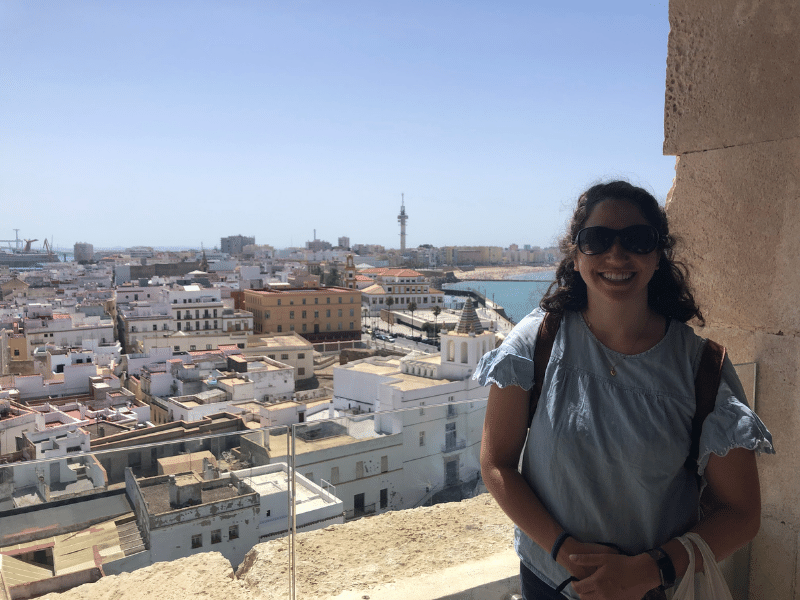
This past July, I found myself sitting on a twin bed deep in the Argentine winter, asking why I’d chosen 4 p.m. sunsets over a month of leisurely reading in a hammock. Why did I allocate my personal time off to guide high schoolers through the unfamiliar streets of Buenos Aires, a city both foreign to me and distant from my family? The answer was what it always is: When given an opportunity to try something new, whether it be “fromage de tête” from my host mom in Pontarlier, France, or flying trapeze at the circus school around the corner, I’m inclined to say “yes.” I’ll try anything twice. Except “fromage de tête,” that’s not happening again.
Whenever I set foot in a new place, I find myself in a simultaneous panic and thrill, unsure whether it’s excitement or stress about the unfamiliar that’s got me wired. Maybe both? While I’d like to think my comfort with adventure is just as innate as a reflex, it’s undeniable that experiences mold attitudes—and thanks to decades of travels, I’ve developed a willingness to step outside my comfort zone and engage with the unfamiliar in a way that enriches life rather than stressing it.
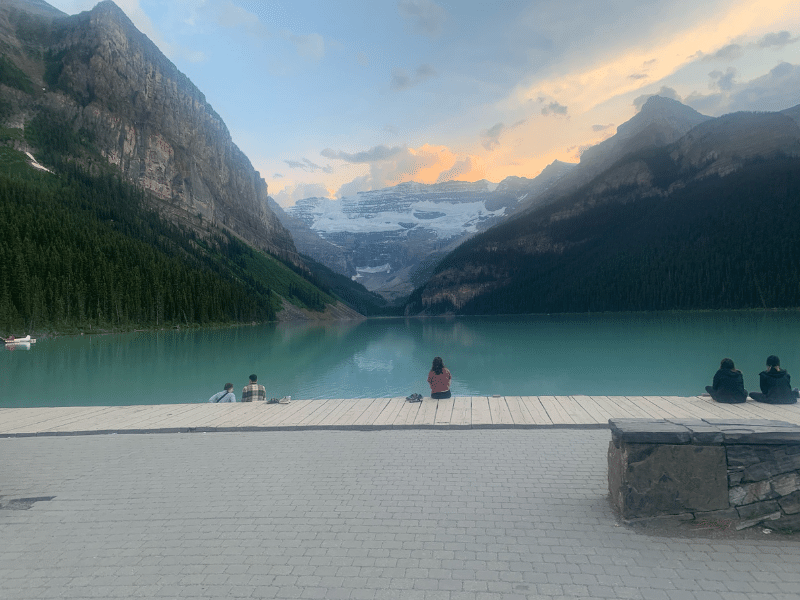
There’s a famous graduation speech by David Foster Wallace that touches on how real intellectual and social freedom, not to mention happiness, is being able to pause and consider the external world as so much more nuanced and well-meaning than we often credit it with. Essentially, maintaining a sense of curiosity and openness leads to a contented adulthood, and those lucky enough to travel are able to flex that muscle in real time. Stepping outside our comfort zone and being a visitor in someone else’s sphere of experience forces us to consider something beyond ourselves and our own routines, and consequently to re-evaluate our “default” setting.
While I didn’t formally study abroad until I was a junior in college, my parents had me in a plane before my first birthday. On many of my trips I had experiences similar to those that Putney students have on many of our Exploration, Career, and Language programs—cooking fresh fish along the Mediterranean, practicing Spanish in an outdoor market, or snorkeling along a tropical reef. Others were more physically challenging and community-based like our Service programs—weeks building houses in the Southern Vietnam heat, planting corn along the hills in Chang Mai, or hiking into the Berber villages in Morocco. Yet, it was the challenges, along with the thrills, that fostered adaptability and curiosity—qualities instilled in young explorers today here at Putney and nurtured by our program leaders.
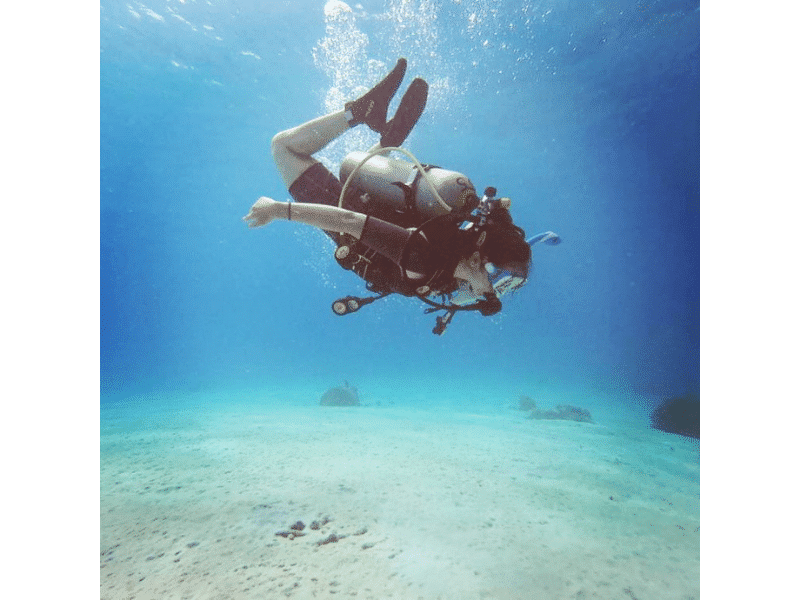
People travel for countless reasons—to reunite with family, learn a new language, or confirm if Italian pizza truly reigns supreme. Some seek the thrill of altitude or seeing a real-life, totally awesome, in-the-wild wildebeest. For me, then and now, travel is a reminder of the vastness and wild diversity of the world—ecologically, socially, religiously, culturally, geographically, and gastronomically…did I mention the “fromage de tete?” Our impact as travelers has the potential to be profoundly beneficial, and the summer programs we develop here at Putney aim for what my own travels achieved—to instill deep curiosity about the world around us, to facilitate cross-cultural connection, and to foster excitement about embracing the unknown and the unfamiliar.
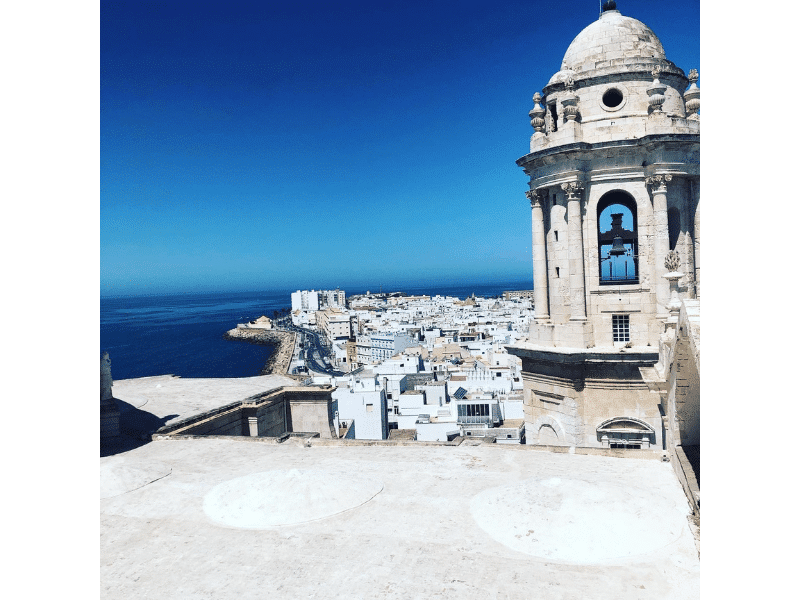
On summer programs like these, it is so rewarding to witness how new experiences can shape our students. This past summer (or winter) in Argentina, my group of students engaged in conversation with a local porteño about their relationship to mate, a bitter drink so culturally ingrained in Argentinian’s lives that it’s practically synonymous with the area. One student, whom we’ll call David, asked about how the pandemic had affected Argentinians’ lives concerning the communal sharing of mate—a practice where a single cup and straw is passed among friends. The interviewee became emotional. He responded, “My entire life, I shared a mate with my father. For the first time in 60 years, we each had our own. I had never felt so distant from him, even in the same room.” David, moved by the response, poured more water into his mate and asked if they could share one.
During our nightly meeting, we asked the group about the most impactful part of their day. David reflected on how his interaction with the older man shifted his perspective on community. He was struck by the shared rituals in Argentinian culture and expressed a desire for a comparable practice in his own life. Later that week, my co-leader and I found six of our students sharing a mate, discussing school, and savoring the unhurried pace of life they were learning to adopt.
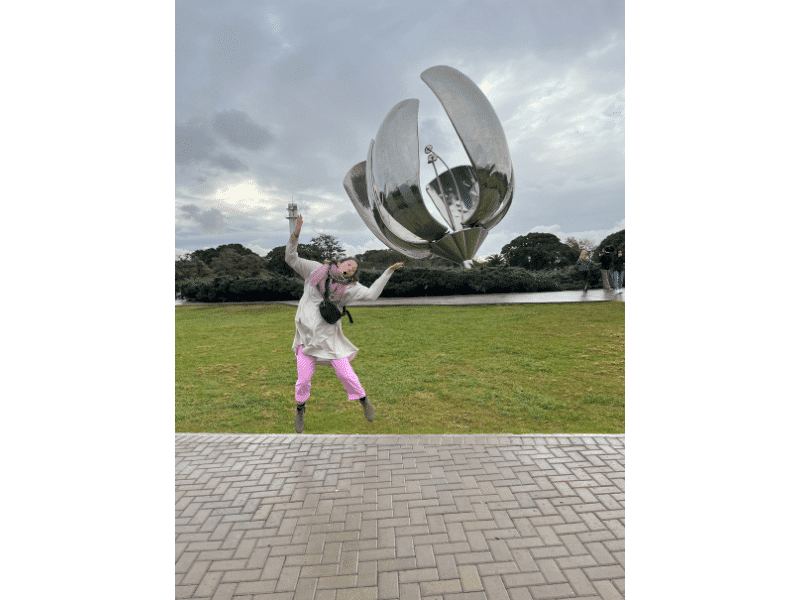
It’s transformative moments like these that make leading student groups so fulfilling, and make it worth trading summer vacations for such opportunities. Countless program leaders could share similar stories. As we look forward to the coming summer, I’m excited to hear the fresh stories that will unfold and have more of my own to tell. But maybe this year I’ll opt for something a bit warmer.
Know an amazing teacher, coach, or mentor who would be a great fit to lead a program with Putney? Direct them to apply on our website or reach out to jobs@goputneydev.com for more details.






